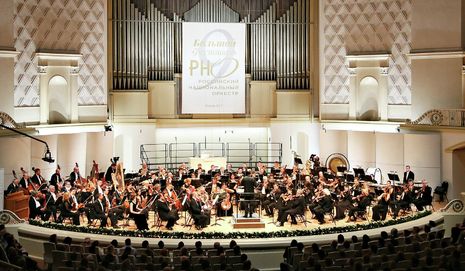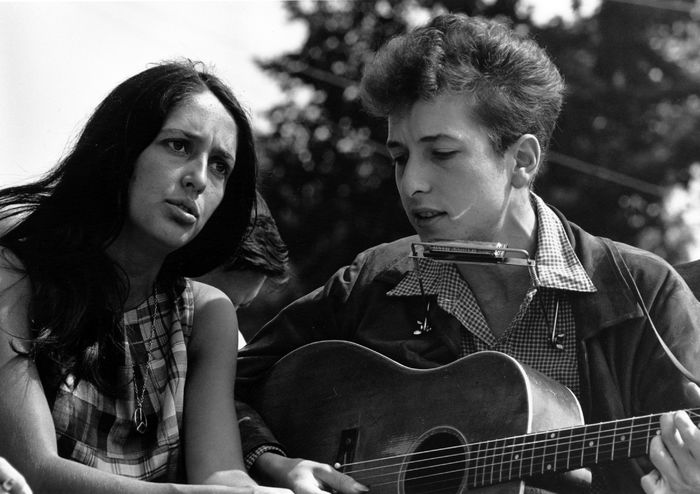A Love Letter to…Georgy Sviridov
Nadya Miryanova applauds the talents of this lesser-known Russian composer

When people think about Russian music, names such as Stravinsky, Rimsky-Korsakov and Tchaikovsky typically spring to mind, conjuring associations that range from the chaotic turmoil of the Russian Revolution to the lively elegance of a ballet. Throughout the centuries, music has formed an intrinsic part of Russia’s national culture and identity, originating with the early sacred music of the Orthodox Church and progressing to more modern styles, such as the experimental avant-garde movement of the early 20th century. In the Soviet Era, classical music in particular was used as patriotic propaganda to illustrate the country’s prestige. While the West widely acknowledges the masterpieces of Shostakovich and Prokofiev, one of the period’s most important and influential composers remains shrouded in obscurity. Georgy Sviridov is a name rarely recognised in Britain, which took me by surprise, since he is immensely popular in Russia and his melodies are amongst the most powerful I have ever heard.
Even Russians who took no interest in music listened for decades each evening to Sviridov’s music
Born in the Russian town Fatezh in 1915, Sviridov’s musical aptitude was recognised early on when he was invited to play the balalaika (a traditional Russian stringed instrument) at his local folk orchestra, having learnt it independently and by ear. After attending music school, he was admitted into the prestigious Composers Union when only 19 and was advised to enrol at the Leningrad Conservatory, where he studied piano and composition under the direction of Dmitri Shostakovich. He graduated with top honours in 1941, creating the First Symphony and Concert for Strings, evocative compositions which underline the tension brewing in a world that had just launched into a global war once more.
Throughout his career, he composed in a myriad of genres - instrumental, film, theatre - but his music tended to gravitate towards choral works, turning poetry into lyrics. He turned to Pushkin for inspiration on several occasions, first gaining high critical acclaim for a set of lyrical romances based on the poet’s verses in 1935, and later, his composition ‘Pushkin’s Wreath’ (1979). Folk and epic elements chime alongside the spirituality of Orthodox Church music to create a colourful vision of Pushkin’s Russia: dramatic, solemn, bold, light-hearted. The contrasting movements evoke Russia’s musical heritage, as well as patriotically reviving a nostalgic, idyllic view of the distant past. Less conventionally, Sviridov set the poetry of Yesenin to music, creating an oratorio in his memory, an emotionally resonating composition filled with haunting melodies that mourn the loss of a revolutionary poet. So popular was his choral music that two of Russia's greatest singers of the 20th century, Elena Obraztsova and Dmitri Khvorostovsky, fought a legal battle for the right to sing his compositions first.
He composed in a myriad of genres - instrumental, film, theatre - but his music tended to gravitate towards choral works, turning poetry into lyrics
Though he is most renowned for his choral works, I first discovered his music when watching the Russian film “Метель” (The Blizzard, 1965), which was based on a short story by Pushkin. His orchestral suite complemented the action of the film to perfection: the suite starts with a valiant troika, lively and strong in character, accompanying the galloping of horses across winter fields. The brass accompany the strings of the orchestra in a graceful and vibrant waltz, composed in an innovative, neo-Romantic style which now calls to mind images of a snow-covered Kremlin and pine forests at winter. However, the most captivating movement of the suite is arguably the Romance. A strikingly beautiful and lyrical motif passes round the orchestra, from the mellow violin to spirited trumpet, brimming with passion and despair while reflecting the inner confusion as the main character walks in the forest after her true love departs.
Even Russians who took no interest in music listened for decades each evening to Sviridov’s music, as a segment from his monumental score for the film Время, вперёд! (Time Forward) was chosen as the opening theme to the news on the First Channel of the USSR, and later Russia’s, Central TV Время (used to this day). The piece brings to mind an engine making steady and confident progress, illustrated by a piano motif with constant underlying percussion. However, it was the heroic trumpet refrain, a powerful ascending melody, that was chosen to become the symbol of changing times for an entire nation. Sviridov was so successful at capturing the patriotic Russian spirit that this composition was chosen to play during the Russians Sochi presentation in 2014 in Vancouver, a credit to the composer’s long-lasting legacy.
Sviridov’s prolific brilliance as a composer was fully recognised during the Soviet era, as he was honoured with the State Prize of the USSR multiple times, the People's Artist of the USSR award (1970) and the Lenin Prize. He was even named an honorary citizen of Moscow, Russia’s greatest tribute for an artist. Though he belonged neither to the new era of avant-garde composers nor to the Romantics, he gracefully brought together the two styles to create original and innovative compositions of his own, uniting tradition with modernity. So why should he not be mentioned more now? His diverse oeuvre serves to celebrate all aspects of Russian tradition, recalling scenes of a glorified motherland while providing an invaluable window into Russia’s rich musical culture.
 News / Eight Cambridge researchers awarded €17m in ERC research grants27 December 2025
News / Eight Cambridge researchers awarded €17m in ERC research grants27 December 2025 News / Downing investigates ‘mysterious’ underground burial vault 29 December 2025
News / Downing investigates ‘mysterious’ underground burial vault 29 December 2025 Lifestyle / Ask Auntie Alice29 December 2025
Lifestyle / Ask Auntie Alice29 December 2025 Sport / Hard work, heartbreak and hope: international gymnast Maddie Marshall’s journey 29 December 2025
Sport / Hard work, heartbreak and hope: international gymnast Maddie Marshall’s journey 29 December 2025 Interviews / Meet Juan Michel, Cambridge’s multilingual musician29 December 2025
Interviews / Meet Juan Michel, Cambridge’s multilingual musician29 December 2025










